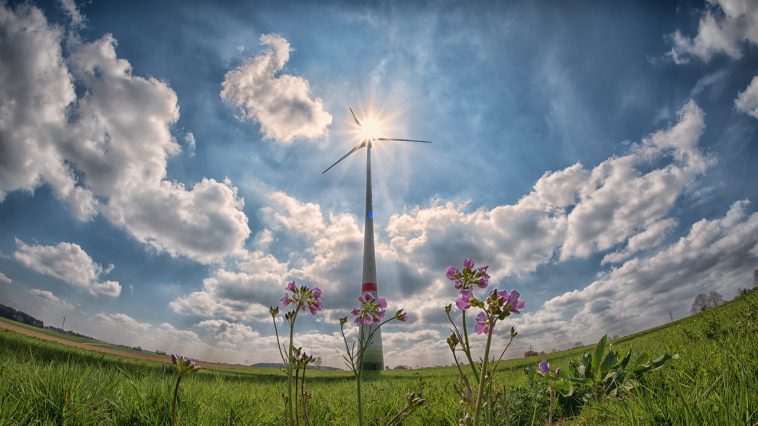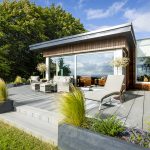What is renewable energy and what are your options if you’re building new or renovating in Ireland today?
In this article we cover:
- Basic definitions
- Solar: PV and solar thermal systems
- Hydro, wind and biomass systems
- Getting paid for exports
The United Nations defines renewable energy as energy derived from natural sources that are replenished at a higher rate than they are consumed. That means harnessing power from the sun, wind, and water. Also included in this category is biomass and geothermal energy.
Beyond heat pumps, which are considered renewable in that they generate three or four times more energy than what’s fed to them, there’s plenty of choice out there for self-builders.
Solar PV
Photovoltaic (PV) panels generate electricity. The panels should ideally face full south; they can be free standing, e.g. on a flat roof or on the ground, but they’re usually mounted on a pitched roof. The set up includes an inverter and the solar companies usually sort out the forms with the network operator. Panels tend to produce around 400W each and the maximum grant you can get in ROI with the SEAI is €2,400 (no grant in NI) which is usually the equivalent of about 10 panels. For an average house, installation costs currently range from €5k to €8k after the grant, or from around £6k depending on the set up and location. Check warranties and certification; not all panels are created equal and costs can vary wildly.

Solar thermal
Solar thermal panels supply hot water and they come in either tubes, which are considered the most efficient, or flat panels. The downside to both solar systems is that the panels are at their most efficient during the longer daylight hours of summer. Yet it’s in winter that more energy is consumed. Technology has come a long way though, and because all you need is solar radiation, energy continues to be produced in winter. Even though it’s a proven echnology, solar thermal has fallen out of fashion as it requires some form of backup, so it’s often used in conjunction with a traditional boiler.
Hydro and wind
Hydro power (energy extracted from a flowing water source) and wind turbines (on an exposed site) are a lot less common on self-build sites than PV. Wind turbines have a visual impact which could have implications for your planning application. But if your electricity demand is high and your site has good wind speeds, which is often the case in rural areas, it’s worth exploring. For self-builders, hydro is mostly an option as a heat source for a heat pump; the efficiencies are excellent and well worth looking into if you do have a stream or other watercourse on site.

Biomass
Modern bioenergy technologies for the home mostly have to do with wood pellet heating systems but liquid biofuels are also being developed to replace petrol (gasoline) for transport. Wood pellet stoves are a great substitute for turf fires as the pellets are cleaner to deal with (no ashes, lighter to handle) but they do need to be kept dry. Wood pellet boilers are available but the logistics (shed large enough, deliveries, keeping it dry, investing in a hopper) have hindered their uptake. According to the International Energy Agency, bioenergy is a zero emission fuel in that biomass contains carbon absorbed by plants through photosynthesis and when the fuel is burned, the same amount of carbon is released. Biomass accounts for 55 per cent of renewable energy worldwide.
Getting paid for exports
You will get paid for the electricity you export, but each electricity supplier will have different rates. What you get paid to export will easily be two to three times less than what you pay to import electricity. In ROI your payment is from the utility supplier under the Microgeneration Support Scheme (MSS) and there’s a tax break on what you earn from it. In NI you get also paid for the energy you export to the grid, with what’s referred to as an export payment; you must have an NIE Networks import / export meter fitted to allow you to do this.









